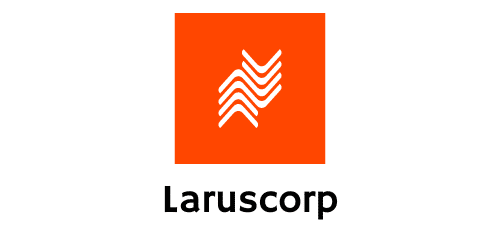
How to create a robust cybersecurity framework for protecting UK e-commerce platforms?
In an era of digital transformation, e-commerce platforms are booming with an unprecedented pace. However, the thriving online business ecosystem also brings about significant cyber risks. Protecting your organization from cyber threats is not merely an option but a necessity. This article delves into the essentials of creating a robust cybersecurity framework tailored for UK e-commerce platforms. We will explore how you can ensure data security, compliance, and risk management through best practices and effective security measures.
Importance of Cybersecurity for E-commerce Platforms
In the modern business landscape, e-commerce platforms serve as critical businesses that handle sensitive customer data. Every transaction, login, and data retrieval process can potentially expose your platform to cyber attacks. This makes cybersecurity a cornerstone for organizations looking to thrive in the digital market.
A lire également : Create professional videos fast with this easy video editor
A strong cybersecurity framework mitigates risks associated with data breaches, ensuring that your customers' sensitive data remains protected. Moreover, adhering to compliance standards such as NIST CSF (National Institute of Standards and Technology Cybersecurity Framework) and PCI DSS (Payment Card Industry Data Security Standard) is crucial for maintaining trust and legal standing.
Small businesses often overlook the importance of security measures, believing they may not be primary targets. However, attackers frequently exploit this complacency, making cybersecurity an essential focus regardless of your organization's size. Implementing proper security controls, such as CIS Controls (Center for Internet Security Controls) and security governance, ensures that your organization can withstand the myriad of cyber threats in the digital landscape.
Cela peut vous intéresser : What are the critical elements of a successful digital advertising campaign for UK SMEs?
Developing a Cybersecurity Framework
Establishing a cybersecurity framework is fundamental for protecting your e-commerce platform. This framework serves as a blueprint for identifying, managing, and mitigating cyber risks. Various established frameworks provide structured approaches, with NIST CSF and PCI DSS among the most recognized globally.
Identifying Critical Assets and Threats
The first step in developing a cybersecurity framework is identifying critical assets within your e-commerce platform. These assets typically include customer databases, payment processing systems, and proprietary business information. Understanding what needs protection allows you to prioritize your security measures effectively.
After identifying assets, assess potential cyber threats. These can range from phishing attacks to advanced persistent threats (APTs). A comprehensive threat assessment provides insights into the tactics, techniques, and procedures (TTPs) employed by attackers, enabling you to tailor your cybersecurity framework accordingly.
Implementing Security Controls
Implementing security controls is vital for mitigating identified cyber risks. CIS Controls provide a set of prioritized actions designed to protect organizations from prevalent cyber-attacks. These controls include:
- Inventory and Control of Hardware Assets: Ensure only authorized devices can access your network.
- Inventory and Control of Software Assets: Manage software to prevent unauthorized applications from running.
- Continuous Vulnerability Management: Regularly update and patch systems to fix vulnerabilities.
Adopting these best practices ensures your e-commerce platform remains resilient against cyber threats.
Ensuring Compliance and Governance
Compliance with cybersecurity regulations is non-negotiable for UK e-commerce platforms. Adhering to standards such as PCI DSS not only protects your data but also secures your organization's reputation and trustworthiness.
PCI DSS Compliance
For e-commerce platforms handling payment information, PCI DSS compliance is essential. This standard mandates specific security controls to protect cardholder data. Requirements include:
- Maintaining a Secure Network: Implementing firewalls and other security measures.
- Protecting Cardholder Data: Encrypting transmission of sensitive data.
- Maintaining a Vulnerability Management Program: Regularly scanning and testing security systems.
Achieving PCI DSS compliance demonstrates your commitment to safeguarding customer information and fulfilling legal obligations.
Security Governance
Effective security governance involves establishing policies and procedures that align with your cybersecurity goals. This includes creating a clear governance structure, defining roles and responsibilities, and ensuring accountability. A well-structured security governance framework fosters a culture of security awareness and compliance throughout the organization.
Risk Management and Incident Response
Risk management is integral to a robust cybersecurity framework. By identifying and assessing cyber risks, you can implement strategies to mitigate potential impacts on your e-commerce platform.
Risk Assessment and Mitigation
Conducting regular risk assessments enables you to identify vulnerabilities and potential threats. This process involves evaluating the likelihood and impact of various cyber threats on your organization. Once risks are identified, prioritize and implement controls to mitigate them. Effective risk management involves continuous monitoring and adaptation to the evolving threat landscape.
Incident Response Planning
Despite your best efforts, cyber attacks may still occur. Therefore, having a comprehensive incident response plan is crucial. This plan outlines the steps to take in the event of a security breach, minimizing damage and ensuring a swift recovery. Key components of an incident response plan include:
- Detection and Analysis: Identifying and analyzing the nature of the attack.
- Containment and Eradication: Isolating affected systems and removing the threat.
- Recovery and Post-Incident Activities: Restoring systems and conducting a post-incident review to prevent future occurrences.
A well-structured incident response plan demonstrates your ability to handle incidents efficiently, minimizing the impact on your business and customers.
Protecting the Supply Chain
In the interconnected digital ecosystem, your organization's security extends beyond internal systems. The supply chain poses significant cyber risks as attackers may target third parties to gain access to your network. Ensuring the security of your supply chain is essential for a comprehensive cybersecurity framework.
Third-Party Risk Management
Managing risks associated with third parties involves evaluating their security measures and ensuring they meet your standards. Key steps in third-party risk management include:
- Due Diligence: Assessing the security posture of third-party vendors before engagement.
- Contractual Agreements: Including security requirements and responsibilities in contracts.
- Continuous Monitoring: Regularly reviewing and auditing third-party security practices.
Ensuring that your supply chain partners adhere to robust cybersecurity standards minimizes the risk of breaches through third parties.
Creating a robust cybersecurity framework for protecting UK e-commerce platforms is fundamental in today's digital landscape. By identifying critical assets and threats, implementing effective security controls, ensuring compliance and governance, managing risks, and safeguarding the supply chain, you can significantly enhance your platform's security posture.
For organizations of all sizes, especially small businesses that may lack extensive resources, adopting established cybersecurity frameworks such as NIST CSF and PCI DSS provides a structured approach to safeguarding sensitive data. Emphasizing risk management, continuous monitoring, and incident response ensures that your e-commerce platform remains resilient against ever-evolving cyber threats.
Investing in cybersecurity not only protects your business but also builds trust with your customers, ensuring long-term success in the competitive e-commerce market. As you navigate the digital age, remember that a proactive and comprehensive approach to cybersecurity is your best defense against the myriad of threats lurking in the digital world.
Protect your e-commerce platform, secure your customers' data, and ensure your organization thrives amidst the complexities of the digital era.
